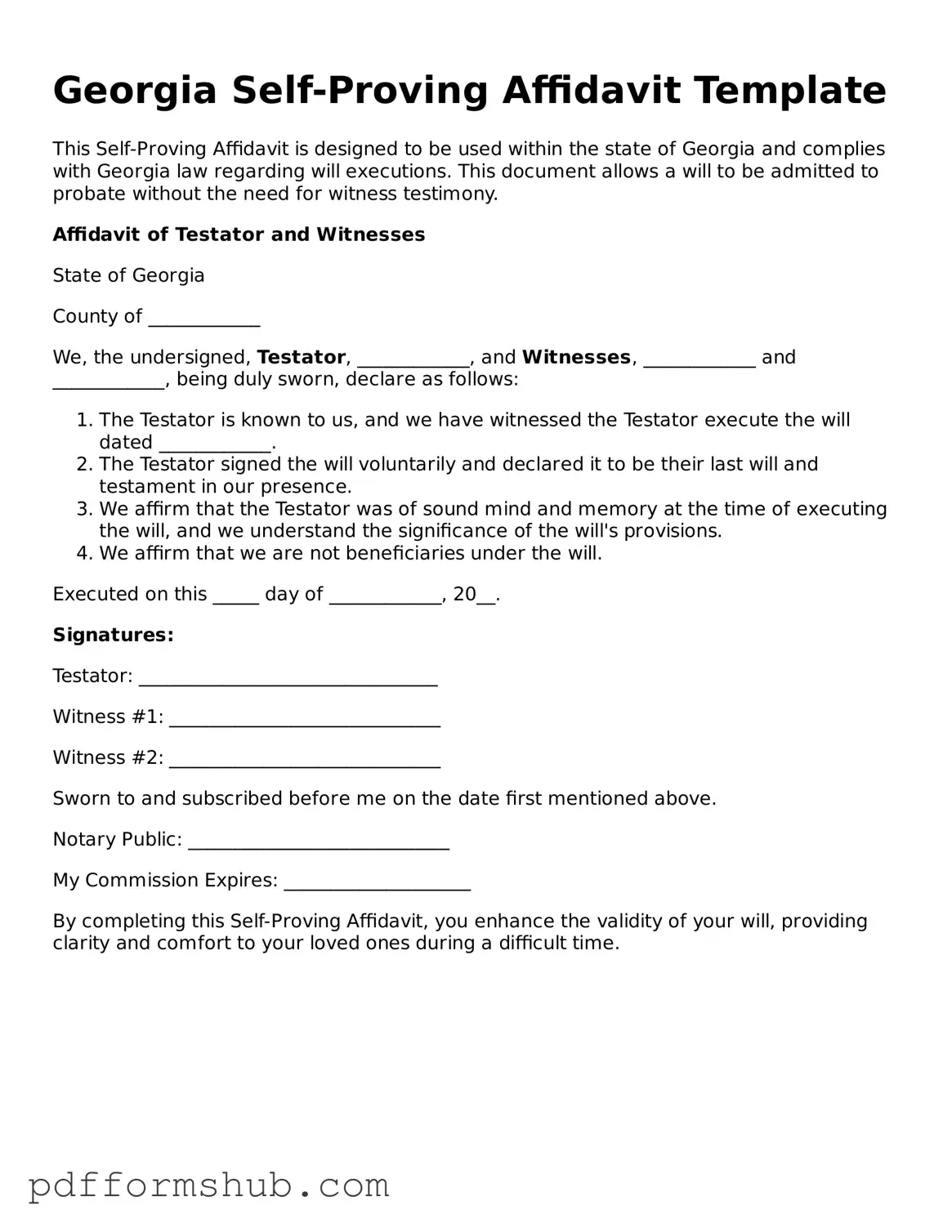Attorney-Verified Self-Proving Affidavit Form for Georgia State
The Georgia Self-Proving Affidavit is a legal document that allows a testator's will to be validated without the need for witnesses to testify in court. This form simplifies the probate process by providing proof that the will was properly executed and is valid. If you're ready to streamline your estate planning, consider filling out the form by clicking the button below.
Customize Form

Attorney-Verified Self-Proving Affidavit Form for Georgia State
Customize Form

Customize Form
or
Free PDF Form
Short deadline? Complete this form now
Complete Self-Proving Affidavit online without printing hassles.